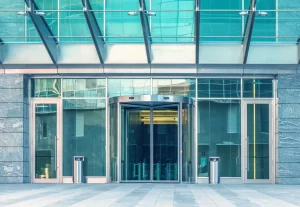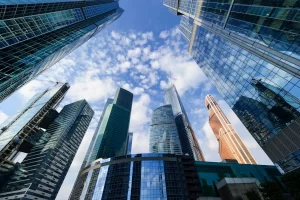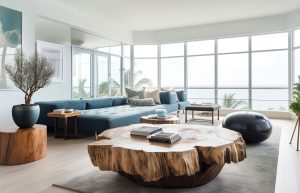
Modern office furniture design has undergone significant transformations in recent years, especially in big cities where the corporate landscape is thriving. The need for functional yet aesthetically pleasing furniture has led to the creation of innovative and ergonomic designs that cater to the evolving needs and preferences of today’s professionals. In this essay, we will delve deeper into the various aspects of modern office furniture design in the big city, examining its impact on productivity, employee well-being, and the overall workspace environment.
One of the fundamental principles driving modern office furniture design is the focus on ergonomics. In a big city environment where long working hours are the norm, ensuring the comfort and health of employees is paramount. Ergonomic furniture such as adjustable desks and chairs that support proper posture are becoming increasingly prevalent. These designs help reduce the risk of work-related musculoskeletal disorders, enhance blood circulation, and alleviate physical discomfort. By prioritizing employee well-being through ergonomic designs, modern office furniture facilitates increased productivity and decreased absenteeism.
Another prominent feature of modern office furniture design in big cities is adaptability and versatility. In bustling urban environments where space is often at a premium, office furniture needs to optimize every square foot. Designers have responded with innovative solutions, such as modular and multifunctional furniture that can be easily rearranged to suit different work styles and accommodate fluctuating staffing needs. These designs not only maximize the utility of limited office space but also promote collaboration and flexibility, fostering a dynamic and responsive work environment.
The incorporation of technology into modern office furniture design is another noteworthy trend in big cities. In today’s digital age, where connectivity and seamless integration of devices are essential, office furniture designers have integrated technology features into their creations. This includes built-in charging ports, wireless charging pads, and cable management systems, which reduce clutter and facilitate easy access to power sources. Such designs enable professionals in big cities to stay connected and efficiently utilize technology resources, enhancing productivity and streamlining workflow processes.
Sustainability and environmental consciousness have emerged as vital considerations in modern office furniture design in recent years. Big cities, with their dense populations and high ecological footprints, often place a premium on eco-friendly practices. Office furniture designers have responded to this demand by incorporating sustainable materials, such as recycled plastics and FSC-certified wood, into their creations. Moreover, they have adopted energy-efficient practices in manufacturing and incorporated recyclability and disassembly into their designs, supporting the circular economy. These sustainable features not only benefit the environment but also enhance the reputation and brand image of offices in big cities.
The aesthetics of modern office furniture design in the big city are also noteworthy. With the rise of open-plan offices and shared workspaces, furniture designs have evolved to create visually appealing and harmonious environments. Clean lines, minimalism, and a focus on natural materials such as wood and metal have become prevalent. Designers often prioritize creating spaces that are both sophisticated and inviting, striking the delicate balance between professionalism and comfort. These aesthetically pleasing designs contribute to a positive work atmosphere and can improve employee satisfaction and well-being.
In conclusion, modern office furniture design in the big city is a reflection of the evolving needs and trends of contemporary workplaces. The focus on ergonomics, adaptability, technology integration, sustainability, and aesthetics have combined to produce innovative and functional furniture that enhances productivity, promotes well-being, and contributes to a positive work environment. As big cities continue to evolve and adapt to the demands of the modern workforce, office furniture design will remain a pivotal element in shaping the workplace of tomorrow.





